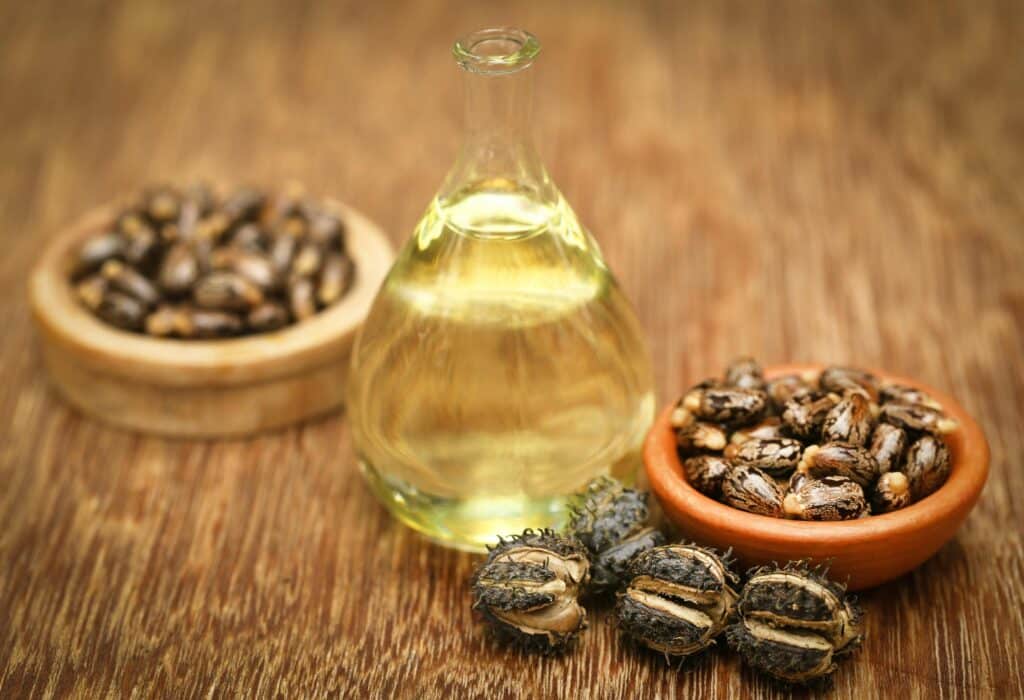Castor oil has been around for a long time, and many people use it as a remedy for health and beauty issues. Recently, it has gained popularity for its benefits for hair care. But is castor oil good for hair? In this blog post, we’ll explore what castor oil is, its benefits for hair, and some alternatives for castor oil.
What Is Castor Oil?
Castor oil is a natural oil made from the castor bean plant. It is rich in ricinoleic acid, a type of fatty acid known for its anti inflammatory properties. The most effective type of castor oil is cold pressed castor oil because it keeps more of its natural nutrients. It’s a thick, sticky oil that people have used for years on the hair and scalp to promote hair growth and improve hair health.
Understanding Hair Transplantation and Post-Operative Care

Hair transplantation is a procedure that helps to restore hair in areas affected by hair loss. This involves transplanting healthy hair follicles from a donor area on the scalp to a bald or thinning area. The two most common techniques are FUE (Follicular Unit Extraction) and DHI (Direct Hair Implantation).
After the surgery, taking good care of your scalp is very important. The scalp may feel sore, and doctors often recommend avoiding strong sunlight, hard exercise, and scratching the area while it heals. It’s also essential to use gentle products to keep the scalp clean and moisturized.
Some people use natural oils like castor oil to keep the scalp moist and support hair growth. However, always talk to your doctor before using anything on your scalp after surgery.
The benefits of castor oil for hair
Castor oil is a natural moisturizer and may offer some benefits for hair and scalp health in general. Some potential benefits of castor oil include.
- Promote hair growth. Castor oil is a popular oil for hair growth. Ricinoleic acid may improve blood circulation to the scalp, potentially stimulating hair follicles.
- Moisturize hair and scalp. Castor oil’s thick consistency can help to moisturize hair. This can help your hair feel softer and less dry. Applying castor oil on your hair regularly can help prevent dryness and flakiness.
- May reduce inflammation. If you have a dry or itchy scalp, castor oil may help to alleviate these symptoms. Castor oil may have anti-inflammatory properties that may help soothe an irritated scalp, especially after a hair transplant.
- Strengthens hair shaft. The fatty acids in castor oil can help to strengthen your hair strands. This can help prevent breakage and split ends.
- Adds shine. Castor oil can help to add shine to your hair. Using it regularly can help your hair look healthier and more vibrant.
While there is no definitive scientific evidence to support all claims about castor oil, many people find it effective in their hair care routine.
How to Use Castor Oil for Hair?

To use castor oil for your hair, start by applying a small amount to your scalp and hair. Gently massage it into the scalp to help improve circulation and promote hair growth. You can leave the oil in for several hours or overnight, then shampoo and condition your hair as usual to avoid greasiness. You can repeat this process once or twice a week.
Can Castor Oil Be Used In Conjunction With Other Treatments?
Yes, castor oil can be combined with other treatments. But it’s important to do a patch test before applying castor oil, especially if you have sensitive skin. Try applying the oil on a small area of your scalp to see how your skin reacts.
However, it’s essential to consult your hair transplant surgeon before applying any oil to your scalp post-surgery. The transplanted hair follicles are fragile during the initial healing stages, and applying oil too soon could disrupt the healing process.
Alternatives to castor oil for post-transplant care
After a hair transplant in Turkey, it’s important to use products that help your scalp heal and encourage hair growth without causing irritation. While castor oil is a good and popular choice for hair, there are other options that may work better for some people.
- Coconut oil. Coconut oil natural moisturizer that can help keep your scalp and hair healthy. This oil is gentle and can help keep your scalp moisturized. It also fights bacteria and can protect the scalp from infection.
- Aloe Vera. Aloe is known for its cooling and soothing properties. Applying it to your scalp can help reduce inflammation and promote healing. Aloe vera gel is also great for moisturizing your scalp after a transplant, which keeps it hydrated as it heals.
- Argan oil. Argan oil is rich in vitamins and antioxidants. These nutrients nourish both the hair and scalp, helping to make them healthy. Using argan oil regularly can promote new hair growth and improve overall hair condition.
- Jojoba oil. This oil is very similar to the natural oils of your scalp. This makes it easy for the skin to absorb. It helps keep the scalp balanced and moisturized, which prevents dryness.
- Tea tree oil. Tea tree oil has antibacterial and antifungal properties, which can help prevent infections and keep your scalp healthy. Tea tree oil is very potent, so make sure you dilute it with a carrier oil before applying it to your scalp.
Always ask your doctor before using any new product on your scalp after a hair transplant to ensure it’s safe for your healing process.
Conclusion
So, is castor oil good for hair? The answer is yes! Its numerous benefits make it a valuable addition to any hair care routine, especially if you’re recovering from a hair transplant.
If you’re considering a hair transplant, Cosmedica in Istanbul, is one of the leading clinics in the field. Dr. Levent Acar, the head doctor, is known for creating natural hairlines and using advanced techniques like the DHI Sapphire Method. This method ensures faster healing and better hair growth after a transplant. Plus our hair transplant cost is very affordable.
To learn more about the procedure and what to expect, visit their website. You can also check out the stunning transformations by browsing the hair transplant Turkey before and after gallery. Contact us today for a free consultation.
